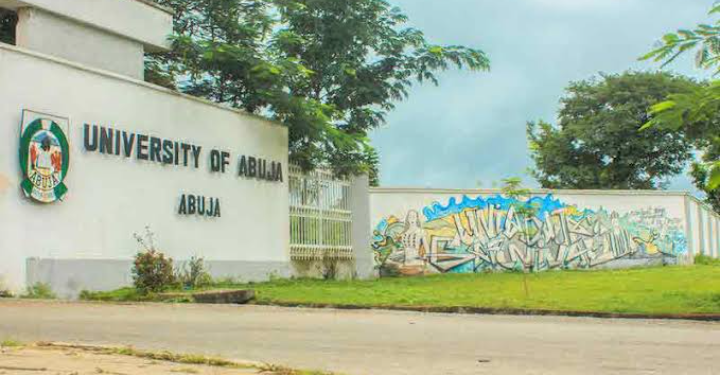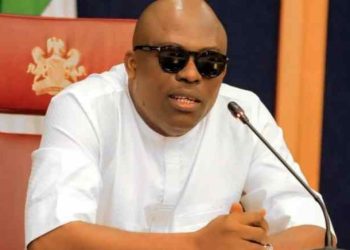By Abdulaleem Haruna, Esq.
As the nation contemplates the recent reports of alleged land encroachment by the Honourable Minister of the Federal Capital Territory (FCT), Barr. Nyesom Wike, on the property of the University of Abuja, it becomes imperative not only to condemn the act but also to educate the public on the legal ramifications of such conduct. The law is clear: once land is lawfully allocated, it cannot be reallocated or repossessed arbitrarily, even by the Minister of the FCT.
This article unpacks the legal framework surrounding the ownership, use, and protection of land allocated to federal universities – with a particular focus on the University of Abuja – and explains why any move by the FCT Administration to seize such land is not just illegal but a breach of statutory trust. All Federal Ministers are supposed to be GUARDIANS OF PUBLIC TRUST.
- The University of Abuja – A Statutory Fortress
A fortress is a property that is highly protected and fortified agents any form of attack. And that is exactly what the University of Abuja is: a Statutory Fortress. The University, along with all its properties, including its land, are fully protected by law.
The University of Abuja Act 2004 (Cap U2, LFN 2004) is a federal law originally enacted as a Decree by the President Ibrahim Badamasi Babangida (GCFR) administration in 1988. It became an Act of Parliament in 1999 with the return to democratic rule. On the other hand, the Federal Capital Territory Administration was created by President Olusegun Obasanjo on 31 December 2004 following the scrapping of the Ministry of the Federal Capital Territory (MFCT). This is instructive.
The University of Abuja Act is unequivocal about the legal status of the University’s land and property. Section 3(h) of the Act vests the Governing Council of the University with powers to “acquire and hold movable and immovable property” and to “deal with the same in such manner as it may think fit for the purposes of the University.” This power is not extended to the FCT Minister or to anyone outside the University. The power is not even available to the Honourable Minister of Education who supervises the University and ensures that the University complies with laws and extant regulations and implements education policies of the Federal Government.
To be more specific, S. 3 (h) of the University of Abuja Act is made “subject to section 22 of this Act, to acquire, hold, grant, charge or otherwise deal with or dispose of movable and immovable property wherever situate.”
Most importantly, S. 22 is an explicit restriction clause which prohibits the alienation, sale, or transfer of University land without due authorization. For the avoidance of doubt, S. 22 is captioned: Restriction on disposal of land by University and it provides as follows –
Without prejudice to the provisions of the Land Use Act, the University shall not dispose of or charge any land or an interest in any land (including any land transferred to the University by this Act) except either with the prior written consent, either general or special, of the President.
Provided that such consent shall not be required in the case of any lease or tenancy at a rack-rent for a term not exceeding 21 years or lease or tenancy to a member of the University for residential purposes.
The implication of this provision is that land, once granted for the purpose of the University, remains inviolable and cannot be appropriated by any external authority without following lawful procedures. The only officer that is exempted is the President. Even at that, the President can only exercise his authority if the process leading to the alienation of the University land is initiated by the University itself. We must not interpret the law out of context.
Accordingly, to encroach upon the University land without the consent of the University or without compliance with legal processes constitutes a violation of the University’s enabling Statute. Needless to say that the University is a corporate citizen with legal capacity to sue and be sued in its own name as enshrined in S. 1. (1 & 2) UAA.
- The Land Use Act and Constitutional Implications
The Land Use Act 1978, incorporated into the 1999 Constitution by virtue of Section 315(5), provides that all land in the FCT is held in trust by the President, and by delegation, the FCT Minister, for the use and common benefit of all Nigerians.
Section 28 of the Land Use Act allows for the revocation of a right of occupancy only under specific conditions, including “overriding public interest.” Even then, the law mandates the payment of compensation /resettlement and the issuance of formal notice of revocation to the holder of the right.
There is no record of such revocation procedures being initiated in respect of the University of Abuja land. Therefore, any attempt to allocate or repossess the University of Abuja land without formal revocation and compensation is not only procedurally defective but legally null and void.
- The Minister’s Actions and Legal Culpability
Barrister Nyesom Wike, a senior legal practitioner and a sitting Minister, ought to be fully aware of the sanctity of statutory and constitutional provisions. The reported act of re-allocating portions of University land to private developers or other agencies, without consultation, compensation, or lawful revocation, is a classic case of administrative impunity and legal overreach.
If substantiated, such actions may amount to:
- Abuse of office;
- Breach of public trust;
- Violation of the statutory rights of the University of Abuja;
- Violation of the Land Use Act and by extension, violation of the Constitution of the Federal Republic of Nigeria 1999; and
- Criminal trespass under extant land laws.
Moreover, any private entity that purports to derive title from such unlawful allocation is vulnerable to future revocation, litigation, and financial losses.
- The Principle of Sanctity of Public Institutions
Universities are not just academic institutions; they are national assets and symbols of societal progress. The land granted to the University of Abuja was intended to provide room for expansion, development, and innovation. Encroaching on this land without due process undermines the vision behind the University’s establishment and the integrity of government institutions.
It also sends a disturbing signal to the public that even institutions established by federal law are not immune to executive interference.
- Consequences and the Way Forward
The consequences of this alleged land grabbing by the FCT Minister are far-reaching. If not challenged and reversed:
- The University will lose the capacity to meet future infrastructural demands;
- Existing collaborative agreements and Memoranda of Understanding with Developers, various Agencies, corporations and businesses will be frustrated
- Donor Agencies, Development Partners and the international community may perceive instability in Nigeria’s land tenure system;
- Students and staff will suffer disruption in both academic planning and infrastructural development.
It is therefore imperative that:
• The Honourable Minister should immediately cease all encroachments on the University of Abuja land;
• President Bola Ahmed Tinubu (GCFR), as Visitor to the University, should urgently institute a public investigation to ascertain the legality of the alleged recent land allocations;
• The University itself should urgently take steps to seek legal redress in order to enforce its rights because delay defeats equity. In the legal world, we say equity aids the vigilant and not the indolent.
Conclusion
In conclusion, it should be noted that the rule of law is the cornerstone of any democratic society. No one, no matter how highly placed, is above the law. The land granted to the University of Abuja is not idle real estate, it is fully occupied. Moreover, it is a trust held for the future of Nigerian education.
Let it be known that statutory property is not political spoil. Any action contrary to this understanding is an affront to social justice, equity, and the spirit of the Nigerian Constitution.
Abdulaleem Haruna is a legal practitioner of 29 years experience. He is a Deputy Registrar at the University of Abuja and serves as Special Assistant to the Pro-Chancellor on Information, Strategy, and Legal Matters.









